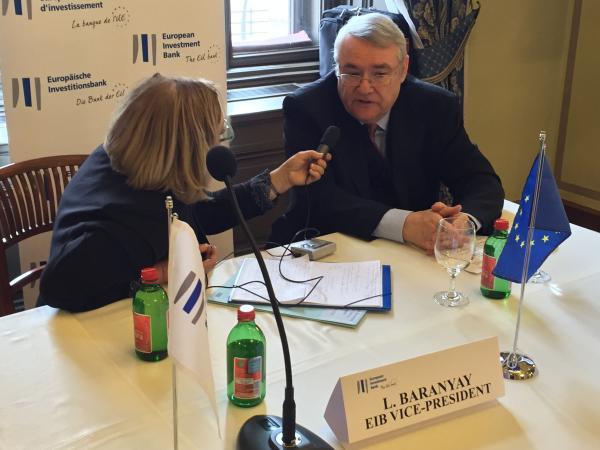
In 2015 in Hungary the European Investment Bank signed new loans amounting to EUR 1.42bn, representing the highest level over the period of the past three years.
EIB Vice-President László Baranyay, responsible for the Bank’s operations in Central European countries, informed Hungarian journalists about the EU bank’s performance in Budapest today and stressed that the EIB is keen to maintain its high level of support in Hungary in the years to come.
“Lending by the EU bank in Hungary reached a total of EUR 1.424bn in 2015, representing an 88% increase compared to the previous year and a record amount since 2012”, commented Vice-President Baranyay who continued that “this year the EIB Group will build up its physical presence in Hungary by opening its new office to further increase contacts with public and private promoters.”
In 2015 the Bank provided a HUF 34.5bn (around EUR 115m) loan to the Hungarian Academy of Sciences to finance its basic scientific research and the operation of its Library and Digital Information Centre.
Last year the EU bank pledged co-financing totalling EUR 1bn with EU funds over the programming period 2014-2020. This involves two loans: EUR 500m to co-finance priority projects receiving support from EU Cohesion Funds, European Regional Development Funds and the Connecting Europe Facility; and EUR 500m to co-finance priority projects being supported by European Regional Development Funds and the European Social Fund.
Both loans are first tranches of already approved EIB loans totalling EUR 2.5bn and they will support projects costing a total of EUR 24bn. This combination of EIB loans and EU grants enables Hungary to meet its national strategic priorities – supporting sustainable economic growth and improving the everyday life of citizens by boosting labour productivity, promoting inclusive economic growth and increasing the number and quality of jobs.
In 2015 the EIB provided significant support for the development of Budapest:
- EUR 200m to finance priority investment schemes in the areas of public transport and road networks, including the reconstruction of metro and suburban railway lines, tram and trolleybus infrastructure, road and bridge rehabilitation and rolling stock-related investments designed to improve the quality of public transport services, and
- EUR 100m to support improvements in the fields of Budapest’s urban renewal and regeneration, energy efficiency enhancement and environmental protection.
This finance is vital for ensuring Budapest’s continued sustainable social and economic development, strengthening its competitiveness by making it more attractive to investors, increasing the quality of life and upgrading the urban environment.

Photographer: EIB ©To be defined
Download original